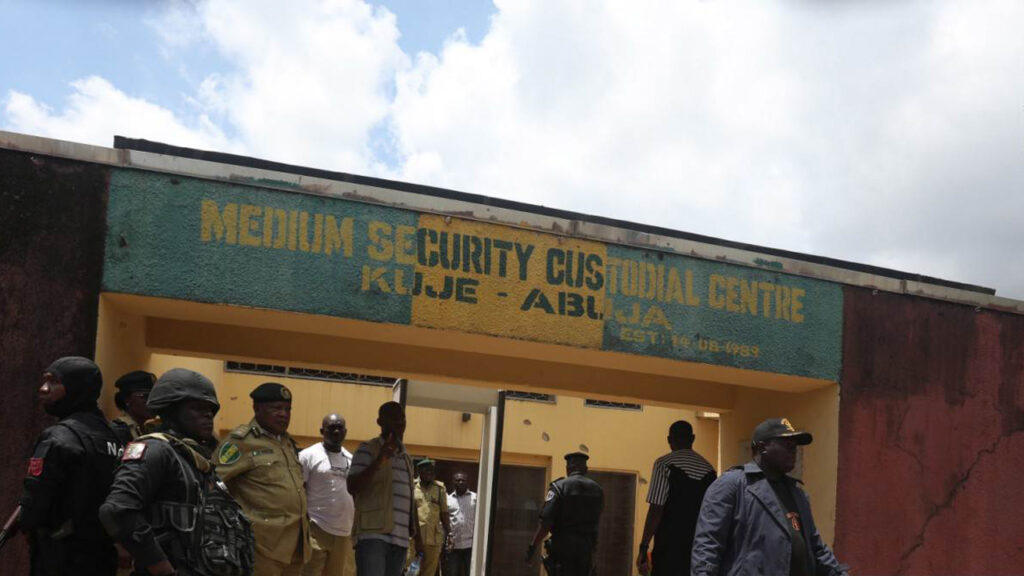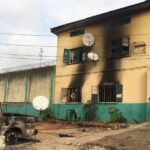
It’s exactly one year today since the unfortunate attack of the Kuje medium security custodial centre in the Federal Capital Territory, (FCT), Abuja, by a suspected terrorist group of the Islamic State of West Africa Province, (ISWAP). Twelve months after, authorities at the Nigerian Correctional Service (NCoS) have said that out of the over 800 inmates that escaped during the attack, only 415 have been rearrested and are back in custody.
Public Relations Officer of the Service, Abubakar Umar, told The Guardian yesterday that even though the search is still ongoing to apprehend all those who escaped, 415 of the escapees have been rearrested.
He said: “Although we still have a significant number of those that escaped outside, more than half of them have been captured. So far, 415 inmates have been arrested and we will not stop until we get them back.
“Last week, one of the escaped inmates was captured in Imo State, so the issue of recapturing is an ongoing process and we will continue to go after them especially now that their pictures have been well circulated. We are in collaboration with the Nigeria Immigration Service where we send their pictures and details to the officers at the borders to be on the lookout and apprehend them should they be seen,” he added.
At the time of the incident, the NCoS released the faces of some high-profile Boko Haram members, about 70 persons, seeking the assistance of the public to recapture the terrorists.
Recall that on July 5, 2022, ISWAP, a terrorist group operating in some parts of Nigeria, claimed responsibility for the attack on the Kuje Medium Security Custodial Centre, where authorities confirmed one security personnel was shot dead and three others critically injured.
The attack on the Kuje facility was considered a national assault and a clear threat to the security and life of residents of the nation’s seat of power.
It was also the peak of a series of attacks on prison facilities in the country with custodial facilities in Bauchi, Ubiaja in Edo State, Kurmawa in Kano, and in Jos, Plateau State, among others that were torched.
Last November, four months after the incident, the then Minister of Interior, Rauf Aregbesola, confirmed that investigation into the attack had been concluded. Giving an update on the probe into the attack, he said the outcome of the investigation would not be made public because it is a “security document. It is still a security document,” he stated.
But the NCoS spokesman, Uma, said a lot of innovations and preventive measures have been taken to forestall future prison attacks and prevent a repeat of the Kuje custodial facility break-in.
According to him, “it was unfortunate that our facility was breached exactly a year ago. However, because of that incident, a lot of development and checks have taken place, not only in Kuje but throughout the country.
“Since the attack, we have put in place a situation room where we monitor our facilities real time 200 meters away from the facilities in all the states from the national headquarters and have upgraded our security in all our facilities.
“Furthermore, the issue of collaboration among security agencies has greatly improved. We have the Nigeria Army, the DSS, the Nigeria Police and the internal ministry of interior task force comprising the armed squads of the Nigerian Correctional Service, the Nigeria Immigration Service and the civil defence corps that form the team of the interior task force guarding the facilities.”













